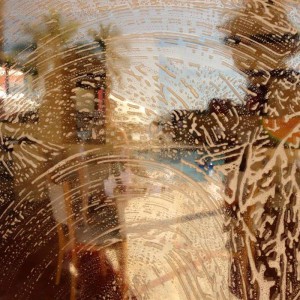Wednesday
Opinion PiecesOpening the Dimension of Sacred Awe
In this age of information technology, many paradigms are crumbling. Although populations are rising, fewer and fewer people are actually embracing traditional religions and the current slate of beliefs and sacraments is seen as less and less relevant. Fundamentalism aside, religious insanity is losing market share.
Fear of the unknown has always been the greatest generator of intellectual and spiritual innovation. In the face of existential uncertainty, religions have long attempted to provide the solace or enlightened guidance truly needed. Today, many people pass over the village priest and turn to science for reassurance and guidance. And we can’t blame them. After encountering the subtle forces of powerful, societal egos with deep cultural roots whenever they enter any church, mosque, synagogue or temple anywhere in the world, people are understandably wary. Maybe those omnipotent religious egos and icons have let us down, one too many times.
Just as once popular brands like Thor, Odin and Zeus failed to adapt to the intellectual and social trends of their time, Allah, Yahweh, and Jesus need to evolve fast lest they, too, find themselves out of business.
Since the spiritual marketplace of the 21st century is inseparable from the internet, people have started to emancipate themselves from the tendrils of cultural egos and demand more than simple theistic dogmas. Today, 3000-year-old archaic scriptural references are subject to modern intellectual scrutiny enhanced by increasingly adroit social research. It is sadly ironic to watch desperate religions reduced to placing weaponry in the hands of teenage extremists in the hope of winning converts. While these throw-backs to a previous epoch may win a battle here or there, they are destined to lose the longer war. Why? Because they have ceased to connect us to the sacred.
The longer any faith fails to deliver genuine spiritual realization, the less likely it is to survive. Over the course of time, some religions, it turns out, prove to have merit; others, quite frankly, do not. Those who do not produce flowers, evolution will weed out. Just as we mock foggy notions of sun gods and celestial jealousies once used to explain droughts, plagues and other persistent voids in human understanding, future generations will look down at many of today’s theologies with scorn.
I live surrounded by once-thriving congregations that are quickly shrinking. Within a few generations cathedrals, synagogues, mosques and temples may cease to be central to anyone’s paradigm. Already, many of the world’s greatest buildings once thought of as the Houses of God, have become hollow architectural relics.
Tomorrow’s societies will not advance on the shoulders of scientific discovery alone, but on the sanity of genuine spirituality. While the entire phenomenon of religion seems to be fading, the vision of a society utterly devoid of magic is equally terrifying. Many young people who spurned the organized faiths of their parents now claim rich inner lives, having turned to meditation, yoga and other practices. Others, unfortunately, seem mired in a world of drugs, hopelessness and despair.
However, neither sanity nor insanity is ever the province of one generation alone. Young men (and women) pounding the air with AK-47s from the backs of pick-up trucks represent the last-gasps of a dying breed of misogynist bullies who cling to power by trying to bolster naive religious dogma with military might, but even their own mothers are not buying it. Such raging fanaticism epitomizes the horrifying death-throes of religious regimes that can’t die soon enough.
Meanwhile, as the debate between religious beliefs and science rages, the individual need for spiritual peace remains as urgent as ever. I would contend that the demise of religion has just begun to unleash the floodgates of souls for whom the pursuit of genuine spirituality is open and compelling. This time around, however, genuine spiritual truths, unlike religious beliefs, must offer more than a mix of common sense and conjecture. Spiritual truths must be founded on inquisitiveness, personal experience and an insistence on veracity, but also open to the dimension of sacred awe. As such, they are the last stronghold of ordinary magic.
While many abject superstitions have survived, the parade of gods who once enjoyed unquestioned dominion across vast empires continues its long march into oblivion. Along its route, throngs of poor adherents simply trying to make sense of this world bow in wonder. The entire spectacle leaves a slight after-taste of disdain best refreshed with a quick shot of atheism. For, in the end, the emperor has no clothes.
No religion, nontheistic, monotheistic or polytheistic, has ever actually succeeded in curing any society of the existential aloneness out of which it arose. Perhaps there was a time when science, religion and spirituality were one and the same. Today – not so much! While half-truths cloaked in poetry are still served up as a feast of wisdom and joyfully accepted by the hungry, the other half of the offering is more quickly discovered to be poisonous. Confusion is sure to give rise to cognitive dissonance, nausea and eventually disgorgement.
This fact, despite the plethora of invisible friends human beings have created since Adam and Eve, has a primordial sting we all still feel. We are born alone, die alone and remain alone. Each one of us is alone even in this very moment. We may cling to our friends, lovers, pets and companions, but none of them can feel exactly what we feel anymore than they can eat our lunch for us. We can project this loneliness on Gods and Goddesses of our own design eternally, but we are still alone. It just doesn’t work.
The promise that if only we can muster enough faith, we can pray our way out of existential loneliness is the most cynical and neurotic twist in the noose of theism. Despite all efforts to deify our projections, our offerings still rot on the altar. Sometimes it takes bravery to doubt, but doubt we must. When the hard questions are not asked, hypocrisy is inevitable.
The most genuine forms of spirituality are born from the most genuine forms of skeptical thinking and in that arena, any religion born from blind acceptance deserves to be unmasked. The societal ego that is maintained by superstitious belief is no different than the individual delusion of a preconceived self maintained by neurotic thought patterns. Both are recipes for despair, social bewilderment and cognitive discord. Thus, as spiritual technologies continue to evolve and become more widely available, the most enlightened individuals and societies alike will continue to outgrow them.
Does it really matter if some people believe in God one way, while others believe in God in a different way? Yes it does matter! Fanatical monotheism has led us to the brink of Armageddon more than once and each time, more and more innocent lemmings have been pushed over the cliff. We should all pray for the day when young people start losing the will to fight each other in the name of gods they don’t believe in. Only then will whole nations start waking up and putting down their arms.
If disarming nations of nuclear weaponry is a goal for this generation, perhaps disarming religions of neurotic weaponry by eradicating extreme beliefs with no basis in reality should be next on the list. As a race, we have been slow to wake up, but each generation is becoming more sophisticated and increasingly more desperate. While there are still societies who are stubbornly held in check by the archaic sublimation of critical thinking, such nations and regions are coming apart at the seams.
Sometimes things have to fall apart so that a more healthy situation can emerge.
While the struggles of fanatics pose a real threat to world peace, the specter of human extinction is forcing us all, both individually and communally, to find more wholesome and creative solutions to our spiritual insecurities. Ironically, the cusp of bewilderment has always been an important rallying point. Politicians have made a science of exploiting fear and using the threat of a common enemy to unify the masses.
Maybe, in this case, the threat of mass extinction will provide a more enlightened wake-up call, despite our doubts. We need to stop and remember what it is that we are so afraid of. Maybe in the end it is not each other; maybe the so-called enemy is our own shadow.
~~
 Roger Guest is a former Executive Director of Karmê Chöling (1980-1986), author of The Tender Heart of Sadness (Aventine 2009) and a senior teacher in the Shambhala Buddhist tradition.
Roger Guest is a former Executive Director of Karmê Chöling (1980-1986), author of The Tender Heart of Sadness (Aventine 2009) and a senior teacher in the Shambhala Buddhist tradition.





